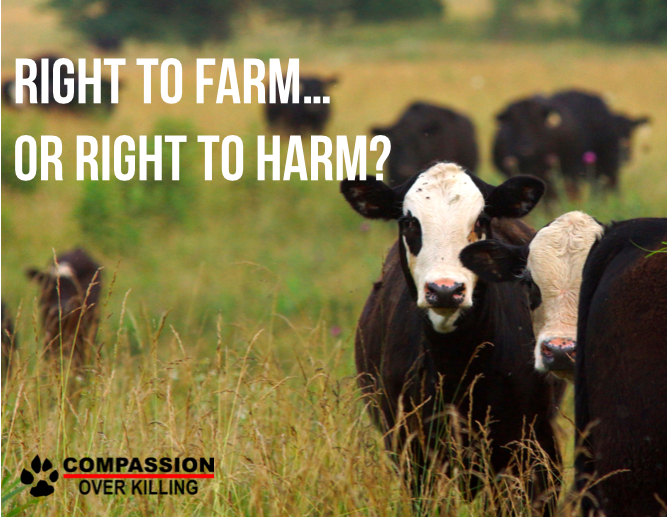The meat industry has been fighting to keep the public in the dark. They’ve been feverishly working to pass dangerous ag-gag laws that would criminalize investigations of factory farms.
Compassion Over Killing has been standing up for the public’s right to know what happens on factory farms every step of the way.
Now, Big-Ag is pushing a new strategy: so-called “Right to Farm” laws.
Right to Farm laws were initially meant to protect small, family-run farms against lawsuits from neighboring homeowners who were bothered by the smell and noise coming from the farms.
Big-Ag is showing how desperate it is by attempting to kidnap these laws, using them instead to protect industrialized factory farms.
Not only are many local homeowners now forbidden to sue much larger factory farms over issues of noise or smell, but some of these “Right to Farm” laws even try to stop local government from banning horrendous production methods like battery cages or gestation crates.
Case in point: Indiana’s state legislature was considering amending their state constitution to include a “Right to Farm” law. Under this amendment, Indiana farmers would have had a constitutional right to use “standard” industrial practices on farmed animals – including violent methods like tail docking for cows, beak trimming for birds, and intensive confinement for thousands of animals.
Big-Ag’s push for these laws isn’t about the right to farm, it’s about the right to harm farmed animals for corporate profit.
Luckily, you can help fight these laws. Compassion Over Killing is keeping a close eye on the development of these bills across the country.
Sign up now for our action alerts to find out how you can lend your voice to protecting voiceless farmed animals in your state.


